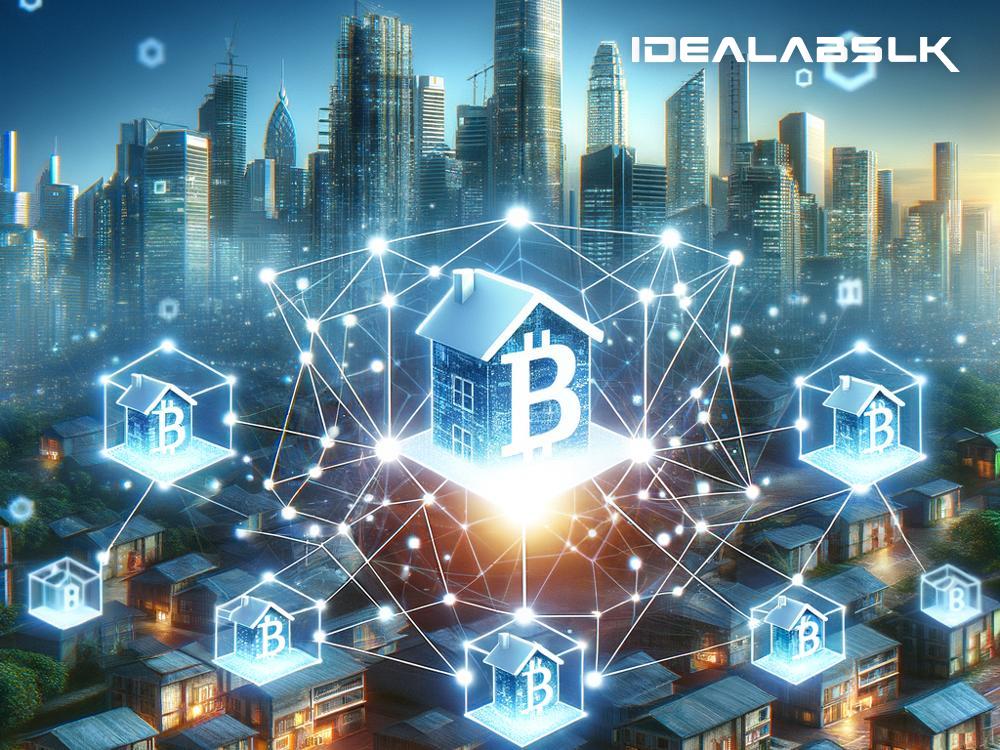Blockchain-Powered Real Estate Solutions for Transparency
In today's fast-moving world, technology is revolutionizing every corner of our lives, and the real estate sector is no exception. Among the various technological advancements, blockchain technology emerges as a powerful tool that offers ground-breaking solutions for enhancing transparency in the real estate industry. But what exactly is blockchain, and how can it transform real estate transactions? Let's dive into a straightforward exploration.
Blockchain Simplified
Imagine a giant, digital “ledger” that records all sorts of transactions securely and transparently. This ledger isn't stored in one place but is distributed across several computers worldwide, making it nearly impossible to tamper with. That's blockchain in a nutshell – a decentralized database or a distributed ledger technology (DLT) that maintains a continuously growing list of records, called blocks, which are linked together securely using cryptography.
The Real Estate Conundrum
Traditionally, real estate transactions are anything but straightforward. They involve countless paperwork, multiple intermediaries such as agents, lawyers, and banks, and a significant amount of time and money. Even after all this, issues related to fraud, errors in public records, and lack of transparency can still arise, leaving buyers and sellers in a state of insecurity and uncertainty.
Enter Blockchain
Blockchain technology, with its inherent features, offers a robust solution to many of these challenges:
-
Increased Transparency: The immutability of the blockchain ensures that once a transaction is recorded, it cannot be altered or deleted. This transparency helps in building trust among parties involved in the transaction, as every action is recorded and visible.
-
Enhanced Security: Through the use of cryptographic hashing and decentralization, blockchain significantly reduces the risk of fraud, unauthorized access, and cyber-attacks. Each transaction is securely encrypted and linked to the previous one, creating a secure chain of transactions that are almost impossible to tamper with.
-
Streamlined Processes: By eliminating the need for middlemen and reducing paperwork, blockchain makes real estate transactions faster, cheaper, and more efficient. Smart contracts, which are self-executing contracts with the terms directly written into lines of code, automate and enforce agreement terms, slashing the time and cost associated with real estate deals.
-
Improved Accuracy of Records: Blockchain can provide a single source of truth for property records, reducing the risk of errors and discrepancies in public records. This system can hold comprehensive historical data about a property, including past transactions, title details, and any disputes, which can be instantly accessed by authorized parties.
-
Democratization of Access: Blockchain opens up new avenues for real estate investment, making it more accessible to a broader audience. Through tokenization, which is the process of creating a digital representation (token) of an asset on the blockchain, investors can now buy fractions of property tokens, lowering the entry barriers to real estate investing.
Real-World Applications
The practical applications of blockchain in real estate are already being explored and implemented across the globe. Several startups and established companies are working on blockchain real estate platforms that offer everything from property sales and leasing to management and investing. These platforms bring buyers, sellers, and investors together in a transparent, secure, and efficient marketplace.
-
Property Sales and Leasing: Platforms utilizing blockchain technology are streamlining the selling and leasing process, making it easier, faster, and more cost-effective to transact properties.
-
Title Management: The immutable and transparent nature of blockchain is being used to manage title records, significantly reducing the risk of fraud and making it quicker and easier to verify property ownership.
-
Investment and Crowdfunding: Tokenization of real estate assets is changing the way people invest in real estate, allowing for smaller investments in high-value properties and opening up new opportunities for investors around the world.
The Road Ahead
While blockchain-powered real estate solutions offer numerous benefits, widespread adoption requires overcoming regulatory, technical, and market challenges. However, as the technology matures and stakeholders increasingly recognize its potential, blockchain is set to become a fundamental part of the real estate industry, making transactions more transparent, secure, and accessible than ever before.
In conclusion, the integration of blockchain technology into the real estate sector brings us a step closer to a future where transactions are seamless, transparent, and devoid of traditional inefficiencies and risks. As we stand on the brink of this transformation, it is an exciting time for everyone in the real estate ecosystem to explore and embrace the possibilities that blockchain-powered solutions offer.

